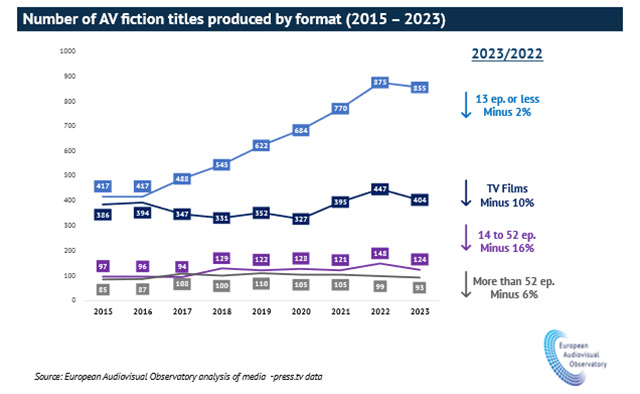Football
Georgia’s footballers in eye of political storm as country goes wild over Euro 2024 run

It is perhaps the feelgood story of Euro 2024. Georgia, the lowest ranked team in the contest and making their first appearance at a major football tournament, will face Spain in the round of 16 after defeating Cristiano Ronaldo’s fancied Portugal team 2-0 to qualify from their group.
The protesters who had filled Tbilisi’s Liberty Square over the last four months to voice their anger over the Georgian government’s alleged re-alignment with Moscow gave way to delirious football fans on Wednesday night.
The prime minister, Irakli Kobakhidze, and the president, Salome Zourabichvili, who have been at loggerheads over the country’s future direction, spoke from the same hymn sheet.
“The boys really gave us a miracle,” said Kobakhidze, who has been accused by the US government of championing “Kremlin-inspired” legislation.
Salome, who claims her prime minister is under the thumb of Vladimir Putin, wrote: “This signifies that wherever there is faith, purpose, selfless dedication and the spirit of victory, there lies victory!”
Just beneath the surface, though, bubbles Georgia’s troubled politics. “Every day, I am insulted by some twat,” said Willy Sagnol, Georgia’s manager, in a press conference before his side’s triumph against Portugal. “I’m a football coach. I’m nothing else.”
From the fans’ chants in Georgia’s opening game against Turkey of “Putin khuylo!” (Putin is a dickhead) to the questioning of Sagnol’s decision to drop a player who had vocally backed those protesting against Georgia’s alleged slide from democratic norms, there are signs of the battle being waged to claim the football team’s glory for one side or the other in the country’s political debate.
Hundreds of thousands of people protested outside Georgia’s parliament earlier this year over the government’s “foreign agents” law that obliges civil society organisations and media receiving more than 20% of their revenues from abroad to register as “organisations serving the interests of a foreign power”.
The legislation is said to be part of an unravelling of all that has been achieved, albeit in fits and starts, since the collapse of the Soviet Union. The EU has warned that it is an obstacle to the country’s prospective membership of the bloc.
The men’s national team threw themselves into that debate with a seemingly coordinated series of social media messages in April at the height of the protests. Jaba Kankava, the team captain, posted a picture on Instagram of two protesters staring down riot police on Tuesday night, adding: “Fuck Russia”.
A host of other national team players, including Khvicha Kvaratskhelia, Georgia’s star winger who plays for Italy’s Serie A club Napoli, posted: “Georgia’s path is to Europe. The European way unites us!! Forward to Europe!! Peace to Georgia.”
Giorgi Kandelaki, a former opposition MP who now works for the NGO Soviet Past Research Laboratory, said the spirit of the national team was western-looking.
“Many of the players have made their views clear during the protests which faced violence by the pro-Russian Georgian Dream and supported the protests,” he said. “Even after the historic win against Portugal they played and sang a protest song that had become a kind of symbol for the rallies. It is without doubt that the courageous Georgian players feel the public sentiment and they see Georgia’s future in Europe rather than [as] a Russian vassal.”
None of that has, however, dissuaded the ruling Georgian Dream party from making its own attempt to convince the electorate, before a general election in October, that they should be credited with the turn around in footballing fortunes after decades of failure, and that the success on the pitch shows that they know what they are doing in other areas of life.
after newsletter promotion
In an example of some of the more contorted logic on display, the Georgian Dream MP Beka Davituliani claimed that the football team’s heroic defensive display against Portugal should inspire politicians to defend the country from supposed LGBTQ+ propaganda.
“We have to defend our country,” he said ahead of a debate over new draft legislation. “Scenes of intimate content should not be shown on television and there should be an age censor in the cinema.”
Kakhaber Kaladze, a former Georgia captain who is the mayor of Tbilisi and in the Georgian Dream party, held a press conference after the team’s win over Portugal to celebrate the progress since his party came to power in 2012.
“We, the Georgians have a special love of football,” he said. “We have now the new generation of very talented players, and we got the result which was impossible to dream about 10 years ago because of the right politics from the Georgian government.”
Then there is the intervention of Bidzina Ivanishvili, the country’s richest man who is also widely acknowledged to be pulling the strings of the government as Georgian Dream’s honorary chair.
He had promised in March to give the squad and coaching staff £8.4m if they qualified from the group stage, and has offered a further £8.4m if they beat Spain.
Sergi Kapanadze, a former deputy speaker of the Georgian parliament who was a member of the opposition United National Movement party, suggested it was a cynical strategy but one that may just work.
He said: “The strategy is quite clear. It’s the willingness to ascribe the success of the national team to the political group. I don’t know whether it is going to work. I think the people are quite polarised, but football is one thing that sort of unites us now. But all these sort of photo ops and the statements and this kind of thing, it might affect some people. Obviously, it’s an old trick in the political PR book, so I wouldn’t be surprised.”










